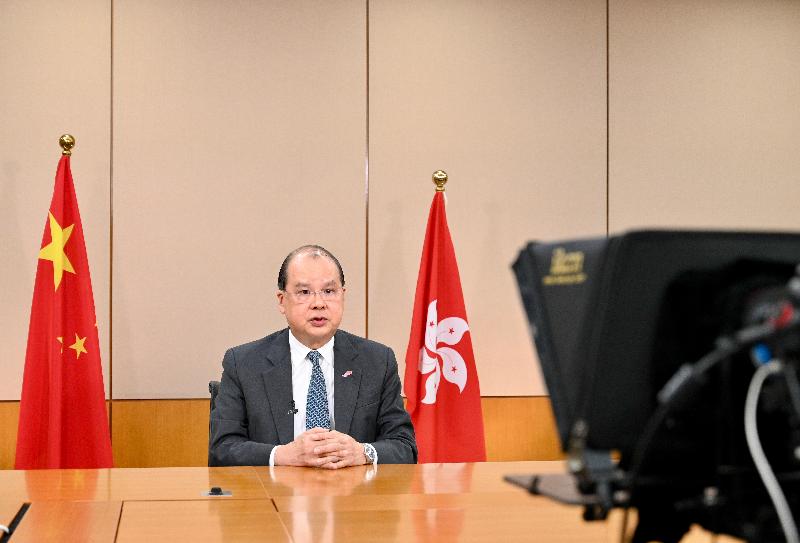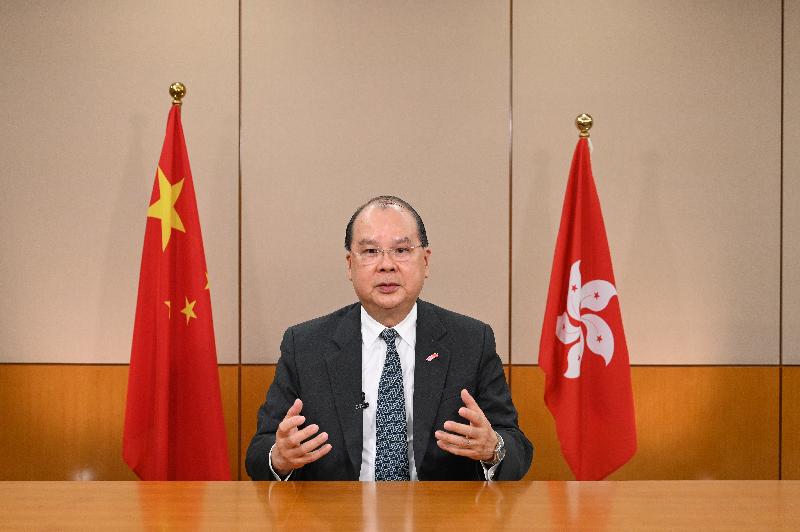The 14-day Universal Community Testing Programme (UCTP) was successfully concluded yesterday (September 14). UCTP has identified asymptomatic patients and cut the community transmission chain as far and as early as possible and achieved the objective of early identification, early isolation and early treatment. It prevents further transmission of the virus for better control of the third wave of the epidemic.
A spokesman of the Government said, “The third wave of COVID-19 epidemic has slowly subsided from its peak in late July. UCTP had effectively identified asymptomatic patients in the community and cut the community transmission chain. A total of at least 42 patients in the community have been identified through testing under UCTP and tracing of close contacts of these confirmed cases, who were arranged for isolation and treatment. Without UCTP, these patients would have continued to carry out various activities in the community leading to further community outbreak and clusters.”
Since its launch on September 1, a total of about 1 783 000 specimens had been collected under UCTP for COVID-19 nucleic acid test, among which 46 were tested preliminary positive and were referred to the Public Health Laboratory Services Branch of the Department of Health (DH) for confirmatory tests as well as subsequent follow-up and announcement. As at 3pm of today (September 15), DH had completed the confirmatory tests for 45 specimens including 32 new confirmed cases, five cases which were concurrently identified through tracing of close contacts and eight re-positive cases of recovered patients. As regards the remaining specimen, its quantity was insufficient in carrying out confirmatory test. The Centre for Health Protection had separately followed-up this case.
Among the 32 new confirmed cases identified under UCTP, 13 of them were asymptomatic and 20 of them were local cases with unknown source of infection. This reflects that through UCTP asymptomatic patients were identified and community transmission chain curbed. Among the 87 close contacts of the confirmed cases identified under UCTP, there were so far five confirmed cases. There might be more patients identified following further tracing of close contacts. This shows that UCTP has helped early isolation of confirmed cases and quarantine of their close contacts. Together with the five other cases identified concurrently through UCTP and tracing of close contacts, so far 42 confirmed cases in total were identified, with their transmission chain cut, through UCTP directly or indirectly. Statistics relating to epidemiological investigation under the UCTP are at Annex.
The spokesman said, “The Special Administrative Region (SAR) Government expressed gratitude to some 6 000 healthcare personnel and some 4 000 serving and retired civil servants supporting the arrangement of UCTP, as well as the some 2 000 personnel supporting information and technology, 24-hour hotline, logistics and safety management. The SAR Government also expressed sincere gratitude to the Central People’s Government (CPG) for deploying the Mainland nucleic acid test support team consisting of some 570 members and providing necessary equipment and resources for UCTP. UCTP attached importance to protect personal privacy and security management for specimens, with specifically designed registration system and logistics system applying multiple technologies, to ensure all specimens were safely delivered to laboratories from testing centres.”
Testing is an integral part of the strategy in fighting the virus. To tackle the third wave of the epidemic, the Government adopts a three-pronged approach in virus testing: (1) ongoing testing for epidemiological surveillance and investigation conducted by the DH and the Hospital Authority; (2) testing for high-risk and high-exposure groups as well as specific personnel for critical infrastructure and services since mid-July; and (3) the one-off UCTP in early September launched by the SAR Government with the support from CPG.
After the third wave of the epidemic and conclusion of UCTP, Hong Kong has since January conducted more than 3.23 million tests (including 2.88 million which were conducted since July). That is, on average around 430 000 tests were conducted per million population and 650 tests were carried out per confirmed cases. On this basis the volume of test conducted in Hong Kong is higher than places like Singapore, Australia, the United Kingdom, New Zealand, South Korea and Japan. It shows that the use of testing as a tool for disease prevention and control has yielded certain positive results. The SAR Government will take into account experts’ advice and collaborate with medical schools of universities in reviewing and summing up the work and experience gained in the prevention and control work from the third wave, including results of UCTP and other surveillance work, to map out the strategies in tackling the next wave of epidemic including that for testing.
The participation of individual members of the public contributes to the success of UCTP. Their support protect themselves and others by cutting the viral transmission chain together, paving way for relaxation of social distancing measures in an orderly manner, and for the gradual resumption to normal life and economic activities. Currently the epidemic situation in Hong Kong has improved though has yet to be completely stabilised. While the social distancing measures have been relaxed in a gradually and orderly manner, each and every members of the public should stay guarded and maintain good personal hygiene as well as precautionary measures to avoid any drastic rebound in local epidemic situation and to sustain the hard earned normal life and economic activities. read more



